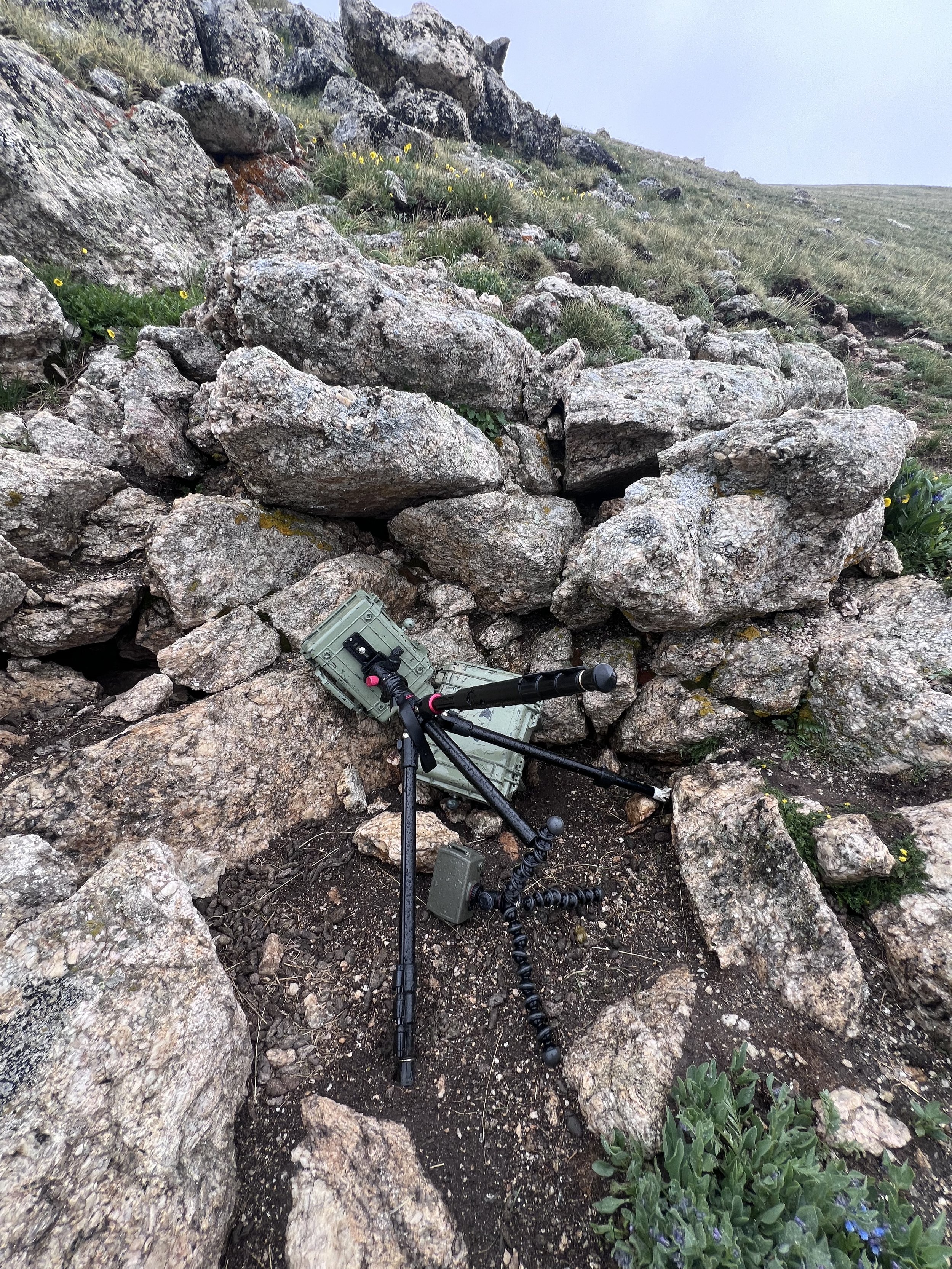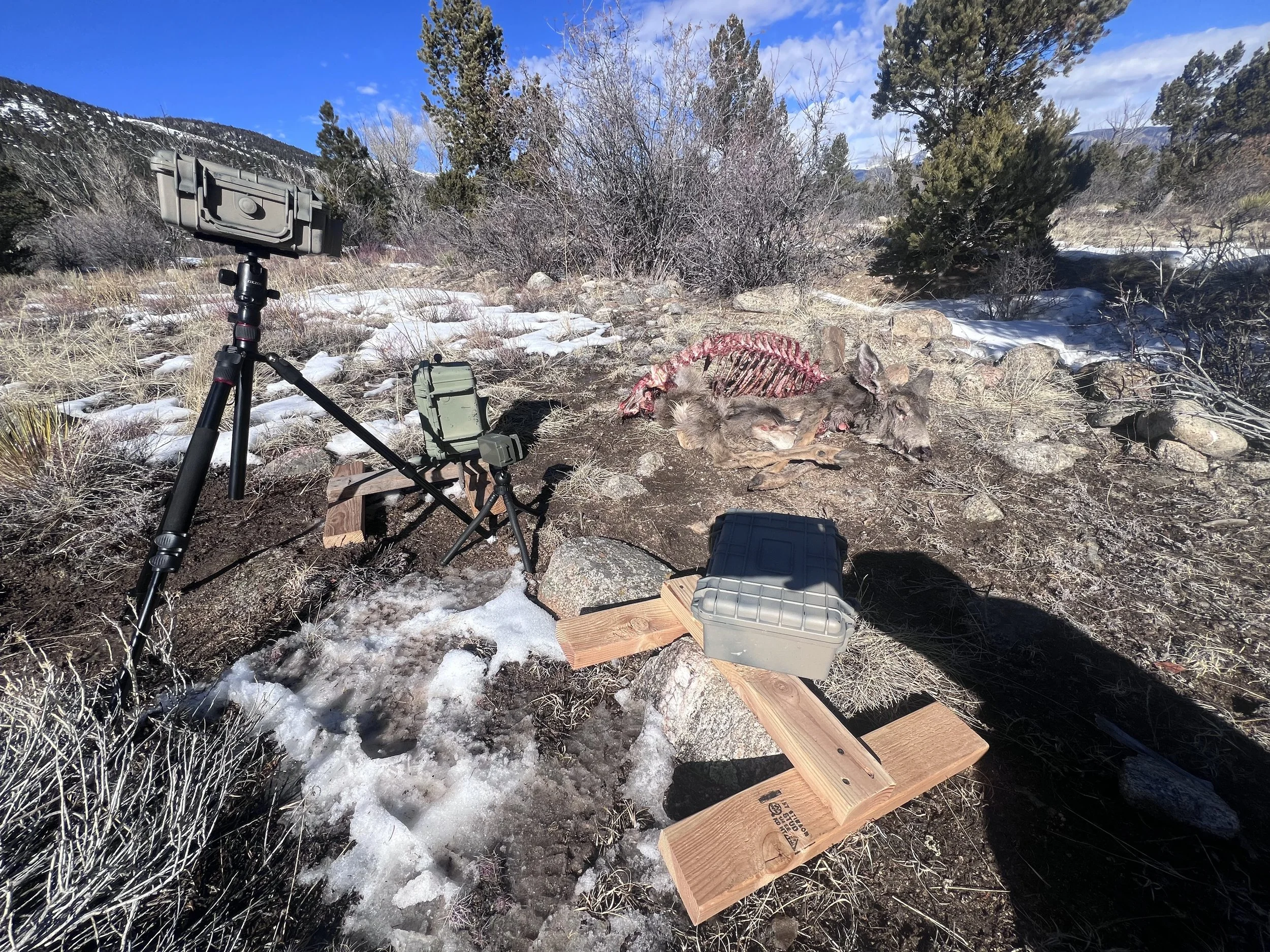Episode 13
Summary
In this episode of Beyond the Wild Podcast, host Mark Raycroft discusses Jason Loftus’ upcoming trip to Africa and his preparations for this epic wildlife photography. It’s a trip that can easily sidetrack any photographer’s conversation, but the spotlight in this episode is guest Kevin Konitshek’s unique wild cat quest in Colorado. Kevin has captured incredible, rarely-seen images of these wild animals in their natural habitat exhibiting iconic behaviour. Kevin shares his passion for wildlife photography and his recent project to capture images of all three wild cat species in Colorado: bobcat, mountain lion and the elusive lynx. He explains the challenges and environmental factors affecting the lynx population in Colorado and the importance of camera trapping in capturing unique and dynamic images. The conversation also touches on the management of wildlife populations and the need for science-based decision-making. Kevin Konitshek discusses his camera trap setup for wildlife photography, including the equipment he uses and the cost of the setup. He also shares tips for setting up the camera traps in different weather conditions and terrain, along with the challenges and successes he has encountered in his passion project to capture images of these top predators. He emphasizes the importance of understanding the behavior and patterns of the animals to increase the chances of capturing compelling images. Kevin shares his passion for winter wildlife photography the extreme dificulty and work effort required to make these unique opportunities. The conversation also touches on the tragic loss of a young wildlife photographer, Carson Hughes, and the importance of cherishing every moment in life.
Takeaways
Preparation is key in wildlife photography, especially when planning a trip to a new location.
Camera trapping allows for unique and dynamic images of wildlife, capturing their natural behavior and telling a story.
The lynx population in Colorado faces environmental challenges such as beetle kill and wildfires, which impact their habitat and prey.
The management of wildlife populations should be based on science and biology, rather than public opinion.
Creating a collection of images that tell a story is often more valuable than individual standout shots.
Camera traps for wildlife photography require a motion sensor, receiver, and transmitter to capture images and trigger flashes simultaneously.
The cost of a camera trap setup can range from $1,700 to $2,300, depending on the equipment and accessories.
When setting up camera traps, it is important to consider the weather conditions and terrain to ensure the equipment is secure and protected.
Understanding the behavior and patterns of the animals being photographed is crucial for successful camera trapping.
Camera trapping requires patience, perseverance, and a deep understanding of animal behavior and habitat.
Kevin Konitshek's project focuses on capturing images of bobcats, mountain lions, and lynx, with each species presenting its own challenges and opportunities.
Scouting and selecting the right locations are crucial for successful camera trapping.
Winter wildlife photography offers unique opportunities and challenges.
The loss of a young wildlife photographer reminds us to cherish every moment and pursue our passions with dedication and enthusiasm.
Sound Bites
"It's not a hobby. It's a lifestyle."
"Captures your natural behavior."
"Tells that story, right?"
"That motion sensor is on channel one. And so channel one will detect something and it will talk to the receiver on channel one, which is plugged into the camera."
"The transmitter will talk to two receivers that are on channel two connected to flashes."
"A really good set for what I'm using is going to be about $1,700."
"I'm gonna get a lynx this winter I know it"
"I like to call them mountain lynx"
"I know I'll get the cat closer with flash on and it's gonna look good"
Chapters
01:00 Preparing for Wildlife Photography in Africa
04:03 Capturing Unique Images through Camera Trapping
12:36 Challenges Facing the Lynx Population in Colorado
24:38 The Importance of Science-Based Wildlife Management
30:55 Telling a Story through Wildlife Photography
33:49 The Cost of a Camera Trap Setup
36:24 Setting Up Camera Traps in Different Conditions
38:39 Collaboration and Customization in Camera Trap Equipment
42:43 Flash Placement and Lighting Techniques
50:38 Capturing Images of Mountain Lions
52:43 Success with Mountain Lion Camera Trapping
57:00 The Rarity and Challenges of Lynx Camera Trapping
01:04:19 Tracking Lynx in the Colorado Mountains
01:10:38 The Challenges of Camera Trapping
01:15:06 The Unique Beauty of Winter Wildlife Photography
01:21:09 Remembering Carson Hughes: A Talented Young Photographer
Guests and Mentions (Instagram)
@kevink_photo
@eisenhaur_photography
@carsonhughes_photography
Thanks for listening to another episode of Beyond the Wild Podcast.To see more of our show and to watch the hosts, as well as the photos and videos that they discuss, tune into their Beyond the Wild Podcast YouTube channel.
Make sure to subscribe to be notified of upcoming episodes for your listening and viewing enjoyment!
Beyond the Wild Podcast is sponsored by Pictureline.com and Canon USA.























































